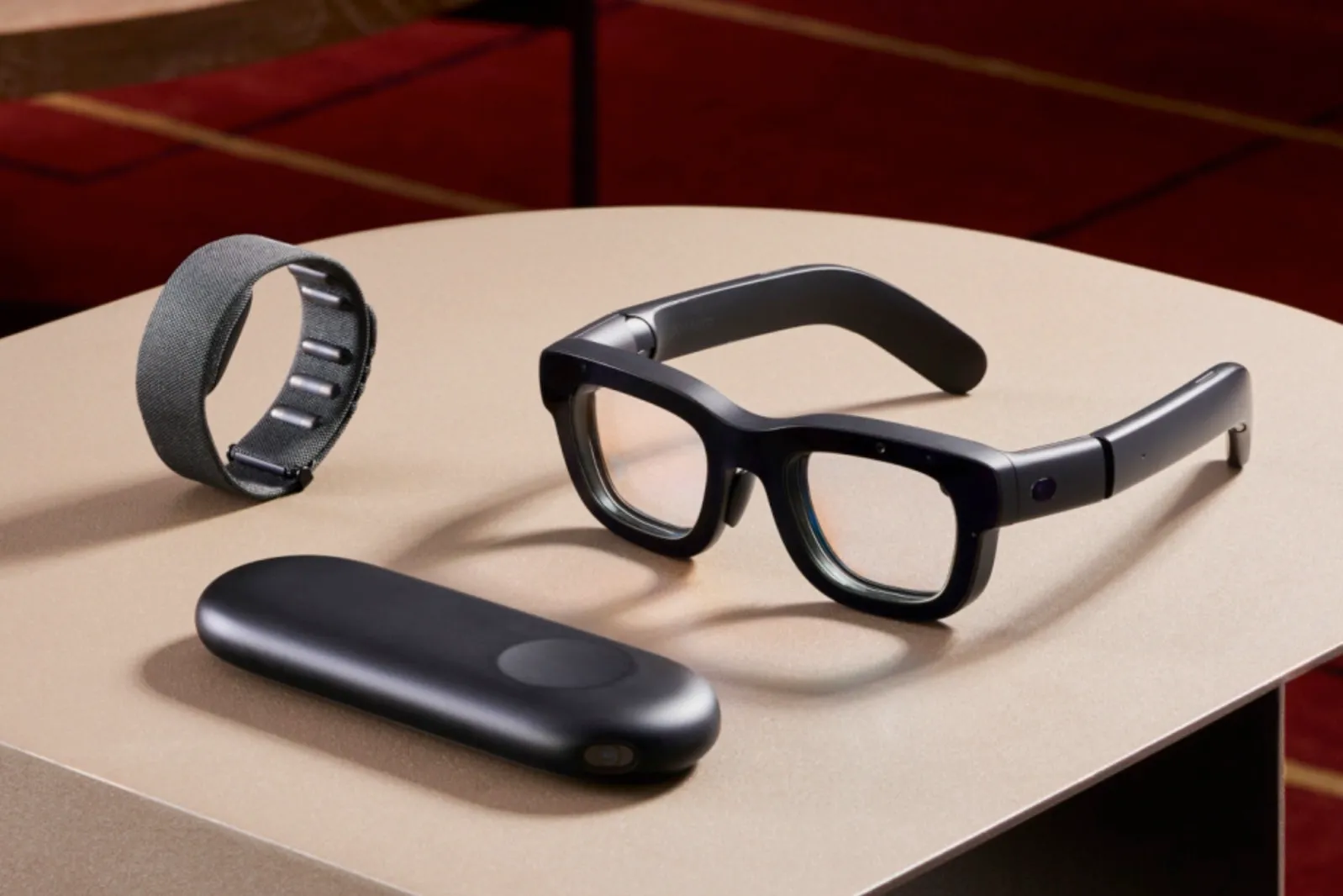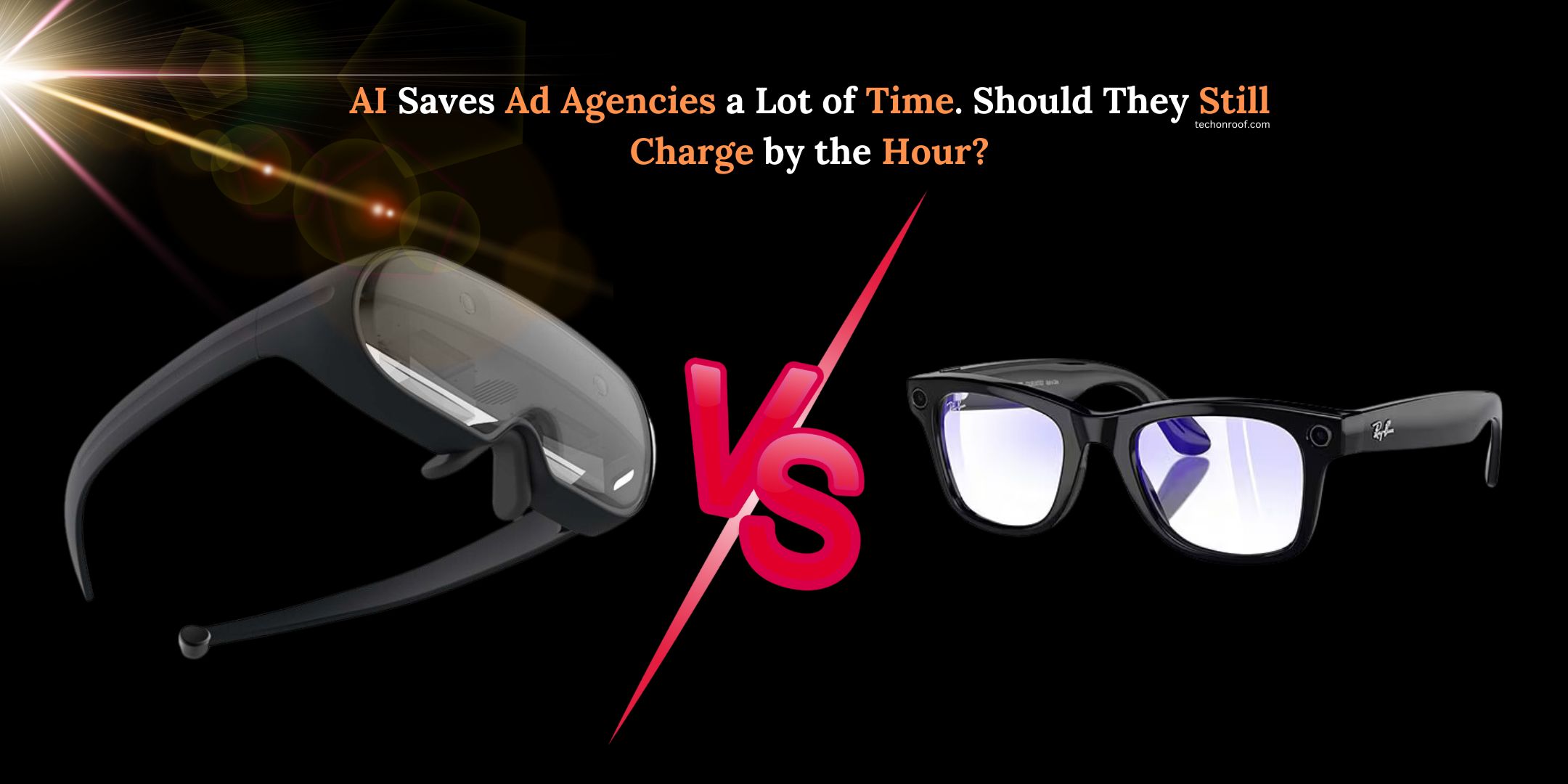For years, people in Silicon Valley and on Wall Street have questioned Mark Zuckerberg’s decision to invest billions into Reality Labs, Meta’s division for virtual and augmented reality. This week, Meta’s wearables division revealed a prototype of its Meta Orion smart glasses, a device they believe could one day replace the iPhone. While the idea still sounds a bit far-fetched, it’s starting to seem less so than it did just a week ago.
Orion is a prototype of smart glasses that combine augmented reality (AR), eye and hand tracking, AI technology, and a special wristband that detects gestures. Using micro LED projectors and expensive silicon carbide lenses, Meta has managed to solve a difficult problem that’s long troubled AR displays.
The goal is for users to see through Orion, much like a regular pair of glasses, while also viewing app windows on the lenses, making it seem like these apps are embedded in the world around them. Ideally, you’ll be able to control everything using just your hands, eyes, and voice.
However, Meta’s Orion smart glasses are still quite bulky compared to regular glasses, and they reportedly cost about $10,000 each. They won’t be available for sale anytime soon, as the technology is still in its early stages. Everything inside Orion will need to become cheaper, better, and smaller before they can be turned into a product you might find at the store. Zuckerberg says Meta has been working on Orion for a decade, but there’s still no clear timeline for when it will be ready for the public.
Meta isn’t the only company working on glasses that might replace smartphones. Snap recently revealed its latest version of Spectacles, though they’re bigger than Orion and have a more limited view. Some former Snap engineers criticized the Spectacles, calling them “obviously bad,” although you can buy them now.
Google has also hinted that it’s working on AR glasses, possibly a reworking of its failed Google Glass project from years ago. Apple is rumored to be developing something similar to Orion, and Jony Ive’s new company, LoveFrom, has announced that it’s working on an AI wearable with OpenAI, though it’s unclear if that will be glasses or something else.
The race is on among the world’s biggest tech companies to create a sleek pair of smart glasses that can do everything your smartphone can and maybe more. Meta Orion has shown there’s potential, but we’re still far from seeing this kind of device hit the market.
Meta Orion is very different from Meta’s Quest virtual reality headsets or Apple’s Vision Pro. While both use similar tech like eye-tracking and hand-tracking, they feel completely different to use. VR headsets are bulky and uncomfortable, and they can cause motion sickness. Glasses, on the other hand, are much easier to wear, and millions of people use them daily.
To his credit, Zuckerberg has been pushing the idea of smart glasses for a long time, even when it wasn’t popular. It’s no secret that Meta’s CEO doesn’t like the fact that his popular social media apps depend on Apple’s iPhones, which might explain why Meta once tried (unsuccessfully) to create a Facebook Phone. Now, Meta’s rivals are also working on eyewear computing, but Meta’s early investment seems to be paying off.
Zuckerberg recently gave a keynote presentation on Orion, and it was met with excitement, even from previously skeptical tech journalists. While TechCrunch hasn’t had a chance to try Orion yet, initial reviews have been very positive.
Right now, Meta is offering a different pair of smart glasses called Ray-Ban Meta. These glasses come with cameras, microphones, speakers, sensors, and AI technology. They connect to your phone and the cloud and are far simpler than Orion. At $299, they’re priced similarly to regular Ray-Bans and have been more popular than Snap’s Spectacles. Despite the huge differences in price and capabilities, Orion and Ray-Ban Meta are more closely related than you might think.
According to Li-Chen Miller, a VP at Meta who leads the wearables team, Orion represents the future, but Ray-Ban Meta is the first step towards that future. The goal is to make smart glasses comfortable, useful, and something people will want to wear every day.
One area Meta is focusing on with Ray-Ban Meta is AI. These glasses use Meta’s Llama AI models to answer questions about what you see by taking pictures and running them through the AI. However, the AI features aren’t perfect yet. They sometimes lag behind competitors like OpenAI’s advanced systems and require very specific prompts. They also don’t integrate well with many apps, making it less useful than simply picking up an iPhone.
Meta is working on updates to fix these issues, including live AI video processing and new features like reminders and more app integrations.
These updates will make the Ray-Ban Meta experience smoother and will eventually make their way to Orion, which runs on the same AI technology. While some features will work better on one device than the other, Meta is trying to improve both.
One major challenge with smart glasses is figuring out how people will type. Smartphones have keyboards, but glasses don’t. Miller, who previously worked at Microsoft for nearly 20 years on keyboard technologies, believes Orion’s lack of a keyboard is actually freeing. Instead of typing, users will be able to talk, use gestures, and look at things to control Orion. These are natural actions that don’t require learning a new skill.
Interestingly, the iPhone faced similar criticism for not having a physical keyboard when it was first released. Microsoft’s former CEO, Steve Ballmer, famously laughed at the iPhone in 2007, saying it wouldn’t appeal to business customers because of its lack of a keyboard. Now, those comments seem out of touch. People adapted to typing on touchscreens, and something similar might happen with smart glasses.
That said, Meta still has a long way to go to make Orion feel truly natural. In early reviews, there were times when application windows completely filled the lenses, blocking the user’s view of the real world. Meta needs to improve its AI, typing solutions, and AR technology, among other things, to get there.
For now, Meta is focused on making Ray-Ban Meta glasses do a few things really well, while Orion is still a much more complex project. As Miller said, building a futuristic computing platform like Orion means they have to do many things well, not just a few.





